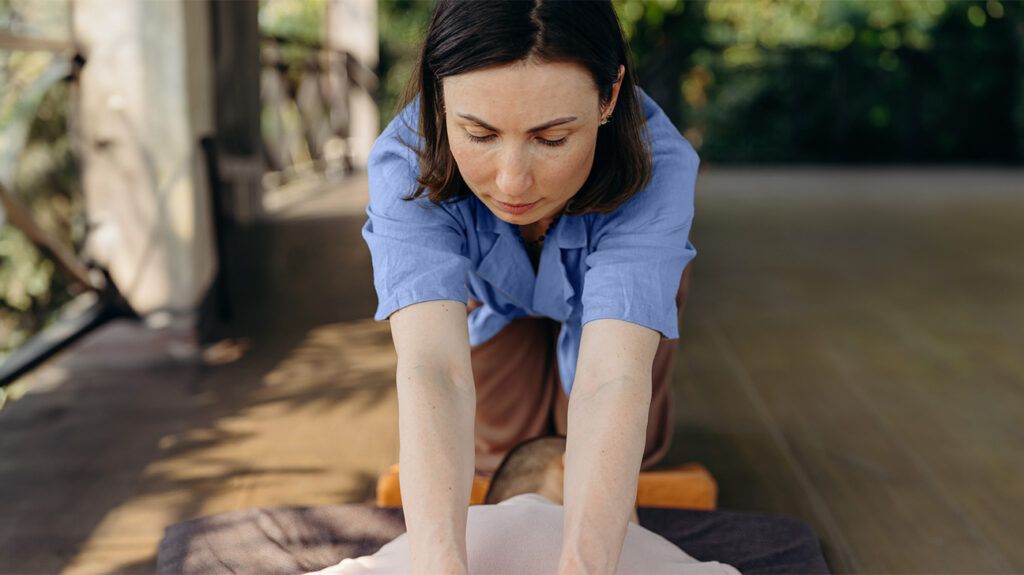Many believe Thai massage has various health benefits, including lowering stress, boosting energy, and improving athletic performance.
The technique that Thai massage practitioners use is very different from what people in the West may be accustomed to. Unlike Swedish or shiatsu massage techniques, in which a person passively lies on a bed, the client lies on the floor and participates more actively in the massage.
This article will look at the benefits of Thai massage and some of the side effects that people may experience.

Thai massage has many health benefits, from lowering stress to relieving muscular tension.
While people may find benefits in Thai massages, it is important to note that many of the following reported benefits of Thai massage have little or no rigorous scientific backing.
1. Lowers stress
Many people
While Thai massages may be more physically involved than some other forms, it is possible they still may provide stress relief, although research in this area is lacking.
For example, a limited, older
Larger, higher-quality studies are necessary to fully assess the efficacy of Thai massage for stress relief.
2. Boosts energy
Research has shown that Thai massage can increase people’s physical energy levels. One 2018 randomized trial examined the effects of Thai and Swedish massages in people who were experiencing fatigue.
The results revealed that Thai massage increased energy and mental stimulation, while Swedish massage was more likely to improve relaxation and sleep.
3. Relieves headaches
Court-type is a specific form of Thai massage that involves applying pressure to specific energy channels.
One
4. Stimulates circulation
Thai massage may promote the circulation of both blood through gentle stretches and muscular manipulations.
A
5. Improves range of motion
Thai massage incorporates yoga-like stretches to reduce stress and improve circulation. Advocates claim that this gradual, gentle stretching will enhance the person’s flexibility over time, allowing a greater range of motion.
A 2017 study found that Thai massage was as effective as joint mobilization therapy in the short-term relief of nonspecific lower back pain.
Athletes are prone to fatigue, muscle and joint pain, and injury during their training. That is why many athletes work with specialized sports massage therapists.
A 2024 study found that Thai massage can help specific muscular fatigue recovery following exercise. Other research also suggests Thai massage may help relieve localized muscular pains and improve joint mobilization. These three factors may be of notable benefit to athletes.
However, it is important to note that these studies do not represent conclusive evidence for the benefit of Thai massage in sports recovery. While some people may benefit from the practice, it is not always suitable.
Working with a range of healthcare professionals to develop a full-spectrum treatment plan is typically the most effective way to improve and maintain athletic performance.
There are no guidelines for how often a person should get a Thai massage. People should try to incorporate daily maintenance routines that involve stretching and relaxation techniques. This will help them remain flexible for a long time after their massage.
People should also listen to their bodies. If someone experiences lasting pain or discomfort in one area of their body, they should see their healthcare provider, as this could indicate an underlying health condition.
For a Thai massage, the client usually lies on the floor, fully clothed. A licensed massage therapist will slowly work the client’s body through various stretches. The therapist may use their hands, knees, legs, or feet to help manipulate the person’s body into different positions.
This should not cause pain or discomfort, but a person should alert their massage therapist if they do experience either of these things.
While Thai massage has many health benefits, the technique also has limits. Due to its impact on the circulatory system, people with the following health conditions should consult their healthcare provider before seeking a Thai massage:
Trained massage therapists can adjust the intensity and pressure to suit their clients. However, a person should avoid Thai massage while recovering from an injury.
Despite its ancient origins, Thai massage remains a relatively new technique in Western culture. Some research suggests that Thai massage is associated with many health benefits, such as improved circulation, an improved range of motion, and reduced levels of stress.
While a person of any age can get a Thai massage, it is not appropriate for everybody. People with certain health conditions, such as cancer or cardiovascular disease, those who are pregnant, and those who have just undergone surgery should not get a Thai massage, as the technique could pose health risks.
If someone is considering getting a Thai massage but is concerned that their medical history may prevent them from doing so, they should consult a healthcare professional first.


